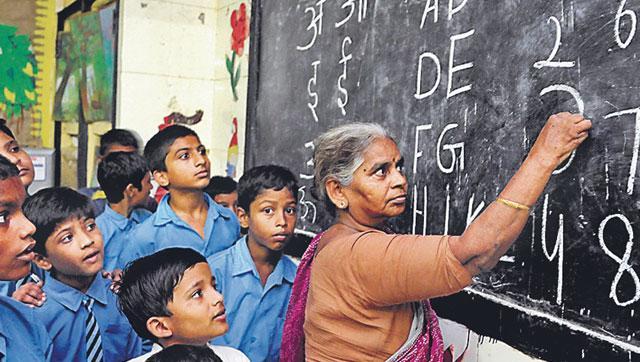
International Literacy Day, celebrated on September 8th every year, stands as a global reminder of the importance of literacy as a fundamental human right and as a driver of personal and societal development. In the Indian context, this day takes on special significance due to the country’s diverse linguistic landscape, rich cultural heritage, and the immense potential that lies in harnessing the power of literacy.
Over the seventy-five years since India gained independence, the nation’s literacy rates have witnessed remarkable growth. In 1947, the literacy rate stood at a mere 12.7 percent, with limited involvement of women and rural communities. However, recent data from The National Statistical Commission indicates a significant increase, reaching 77.7 percent in the year 2017-18.
India Towards the Literacy
India has recognized the importance of literacy and has launched several initiatives to promote it. Some of these initiatives include:
New India Literacy Programme (NILP): The New India Literacy Programme (NILP), recently approved by the Union of India for the financial years 2022-2027, is a testament to India’s commitment to education. This initiative aims to support States and Union Territories in increasing literacy among non-literate 15-year-olds and older individuals. It has set an ambitious goal of reaching 5 crore non-literates, including minorities, effectively replacing the conventional “Adult Education” concept with a more inclusive “Education For All” approach.
Each One Teach One Programme: Founded in 1983, the Each One Teach One Charitable Foundation has been making a substantial impact on the lives of disadvantaged children in both urban and rural areas of India. Over the years, the organization has reached out to more than 10,000 children, providing them with access to quality education, mentorship, and a chance for a better future.
Initiatives to Promote Literacy Among Minorities
India is home to a multitude of communities, including Christians, Jains, Sikhs, Muslims, Buddhists, and Parsis. Recognizing the need for educational empowerment among minority communities, the Ministry of Minority Affairs has implemented various schemes and programs:
-
Begum Hazrat Mahal National Scholarship
-
Maulana Azad National Fellowship (MANF) Scheme
-
Padho Pardesh
-
Nai Manzil
-
Educational Loan Scheme of National Minorities Development Finance Corporation (NMDF)
-
Pradhan Mantri Jan Vikas Karyakram (PMJVK)
-
Initiatives to Promote Digital Literacy
India’s journey towards bridging the digital divide has been a commendable one. Initiatives like the National Digital Literacy Mission (NDLM) and Digital Saksharta Abhiyan (DISHA), implemented between 2014 and 2016, aimed to train 52.50 lakh people in digital literacy. Impressively, these programs certified approximately 53.67 lakh individuals, making significant strides in digital education.
Additionally, the Pradhan Mantri Gramin Digital Saksharta Abhiyan (PMGDISHA), introduced in 2017, intends to impart digital literacy to 6 crore rural households, with at least one person from each household being digitally proficient. The program has made remarkable progress, with around 5.78 crore candidates enrolled, 4.90 crores trained, and 3.62 crores certified.
Nipun Bharat Scheme – Launched by the Department of School Education and Literacy, Ministry of Education, in July 2021, the Nipun Bharat Scheme is a vital initiative under the Centrally Sponsored Scheme of Samagra Shiksha. Its primary objective is to ensure that all children in primary school have grade-level reading, writing, and math skills. The scheme sets clear priorities and achievable agendas for States/Union Territories, aiming to establish competency in basic literacy and numeracy by grade 3.
Challenges on the Path to Literacy
Literacy and education in India encounter several challenges, such as rising dropout rates, gender disparities in education, and disruptions caused by the pandemic. The National Education Policy of 2020 seeks to transform the educational landscape by shifting the focus from theory-based learning to practical, application-oriented approaches. This forward-looking policy envisions a future where students have the freedom to select their subjects. It places strong emphasis on principles like access, equity, affordability, and accountability, aligning with the United Nations’ Sustainable Development Goals. However, implementing and monitoring such ambitious and adaptable policies on a large scale in India poses a significant challenge. Proactive and flexible policymaking is essential to address the evolving needs of the education system, but it may prove complex to execute effectively.
Wrapping up
International Literacy Day in the Indian context is a reminder of the transformative power of education and literacy. It serves as a call to action to continue efforts to eradicate illiteracy, promote lifelong learning, and ensure that every individual, regardless of their background, has the opportunity to unlock their full potential through education. In India, literacy is not just a goal but also a means of achieving social justice, economic prosperity, and cultural preservation. It is a testament to the nation’s commitment to building a brighter, more equitable future for all its citizens.
Mohd. Ziyuallah Khan is based in Nagpur and works with a leading digital marketing company in the city as the Content Head. He is also an activist and social entrepreneur and loves to experiment with special and exclusive programs among young people under the banner – Young Transformers.











































